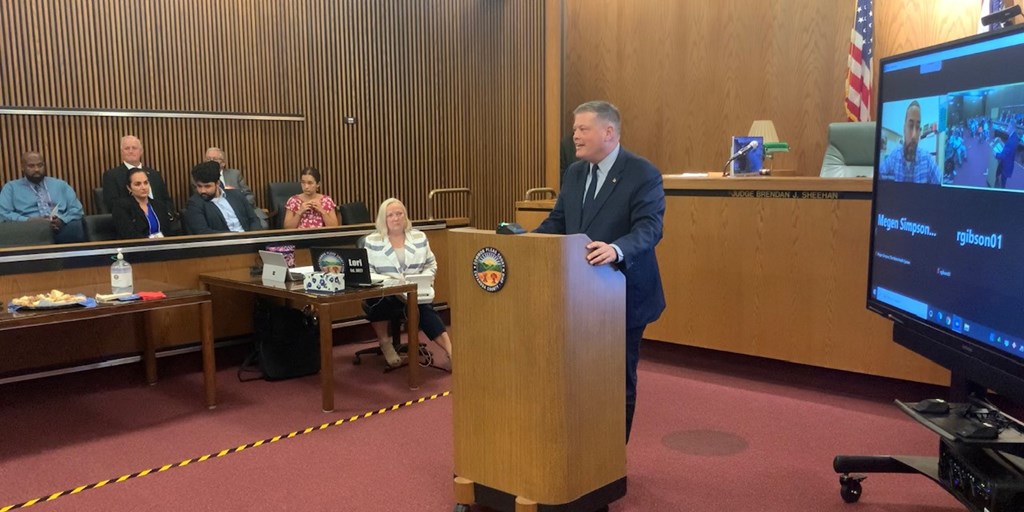Inaugural VIP Graduation

The Cuyahoga County Common Pleas Court graduated the first group of individuals from its pilot Violence Intervention Program (VIP) on Tuesday, June 21, 2022.
VIP, presided over by Administrative and Presiding Judge Brendan J. Sheehan, is designed to assist clients who are arrested with a weapon, but did not use that weapon in a crime. The program works to prevent felony offenders with gun-related specifications from becoming a gun-violence or even homicide-related statistic.
“So many people feel they need to carry a weapon for protection,“ said Judge Sheehan. “We want to encourage behavior-change options to having a gun that could prevent future violence.”
Four people completed the five-phase program, which keeps a felony gun conviction off their records, a key to future employment opportunities.
Among the guests of honor was Cuyahoga County Executive Armond Budish, who told those in attendance, “This is what we want to see. This is the future. We are looking for ways to help people get back into the community, and keep them out of the criminal justice system.”
Myesha Crowe, Executive Director of the Cleveland Peacemakers Alliance, is one of the stakeholders in the program and was a keynote speaker. “VIP is defined as a Very Important Person. Every young person selected to be in this program is a VIP. This is an opportunity to understand that we all have the power of choice.”
VIP receives support from the Cuyahoga County Common Pleas Judges, the Court’s Probation Department, Cuyahoga County Prosecutor’s Office, the Office of the Public Defender and other agency stakeholders.
The program is funded by a three-year, $750,000 grant from the Department of Justice, Bureau of Justice Affairs. Volunteer peer mentors, trauma therapists, and job placement agencies assist the program to target participants, specifically young men between the ages of 18 and 26 from high-poverty Cleveland neighborhoods known for gun-related homicides.
46 additional people are currently enrolled in the docket, which is limited to 50 people.